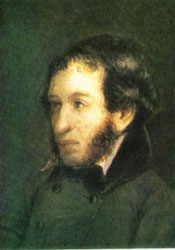Getting Motivated to Write Documentary Narration
I’m going to share two strategies for writing documentary narration, but first I want to announce two exciting educational opportunities for documentary filmmakers.
First, learn important strategies for crafting a great documentary by downloading (for free) my recent radio interview with Paula Guenon on LA Talk Radio at:
http://www.latalkradio.com/Paula.php
Second, I’ll be teaching my popular weekend seminar at the San Francisco Film Society on August 13 and 14. Get in-depth instruction on how to craft your film with this popular two-day course, “Structuring the Character-Driven Documentary”.
Register at:
http://www.sffs.org/classes-and-workshops/upcoming-classes-and-workshops.aspx
If you’re not in the Bay Area, you can get the online version at:
Now on to the main event! Are you experiencing a creative block in articulating your film’s vision or, more specifically, narration? If so, meet Michael Beckelhimer, an LA filmmaker and story consulting client with whom I’ve been working for over a year in my “Inner Circle”.
For several months, Michael struggled to write narration for his interesting personal documentary about a Russian poet. Since he has a masters in Russian from Harvard, and he’s an articulate speaker, I knew that Michael had it within him to write compelling narration. But despite all my instruction on how to write narration (which you can access on my blog), he remained stuck with writer’s block.
Then recently, two things happened that released a flood of eloquently written narration, which makes his film’s structure flow.
First, he stopped trying to write narration in the context of his existing material. He stepped back from the footage and asked himself his film’s central question, “Why are Russians so obsessed with their poet Alexander Pushkin?”
Then he listed 13 reasons, which became the structural flow of his essay-style film. Freeing himself from the tyranny of the scenes already in the timeline, he finally understood what he wanted to say about Pushkin and Russia. His narration will require an additional pick-up shoot in Russia, but that’s fine.
The second thing Michael did is spend time setting up his film’s outreach with a website and Facebook page. Specifically, he used Facebook’s advertisement feature to target people who were interested in Pushkin and Russian literature.
Suddenly 350 people became fans of his film! One fan was a Vice President at Warner Brothers. Another was a McGill University librarian, asking for an advance copy of the film. (In fact, several Russian studies departments were interested in pre-ordering the film.) A successful CEO who loves Russia offered to help Michael anyway he could. And dozens of people emailed him to say how needed his seemingly “obscure” film was within the canon of work about Russian poets.
The result?
Michael exploded with words. Sensing an expectant audience, he articulated with clarity the powerful ideas that had been percolating for so long. “It was very encouraging,” Michael told me during our consultation this morning. “I was reminded that people are waiting for the film.”
And not only did his latest rough cut contain eloquent narration, but his treatment now does what a film treatment should: convey to the reader what the film says, and just as importantly, how it says it. Reading the treatment, you quickly get a sense of what the viewer will see and hear on screen, as you follow Michael on his quest to understand the Russian obsession with Pushkin.
If you are interested in checking out Michael’s work, go to:
Website: http://www.pushkinfilm.com/
Facebook: http://www.facebook.com/pushkinfilm
Also, if you would like to see an example of a well-written, treatment-in-progress, email him at michael@literaryrussia.com to request a copy.
In terms of your own film, if you’re having problems writing narration, first consider thinking about what you want to say apart from the footage you’ve shot. Secondly, I suggest stirring up some social media buzz, to remind yourself that there’s an audience for your vision, just waiting for you to share your ideas with the world.
